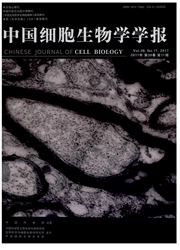

 中文摘要:
中文摘要:
发热是当机体受到细菌内毒素、病毒等刺激,产生损伤或者发生炎症后的一种复杂的生理应激反应。发热可以促进淋巴细胞迁移到次级淋巴器官或者炎症部位,从而增加与病原体接触的机会并促进免疫反应,在免疫稳态维持和机体免疫监视中发挥重要作用。该文将系统地介绍发热和机体免疫的关系,从淋巴细胞的黏附与迁移机理入手,逐步探讨发热范围内的高温胁迫是如何作用到淋巴细胞或血管内皮细胞,最终影响到淋巴细胞的渗出进而发挥相应的免疫功能。
 英文摘要:
英文摘要:
Fever is a complex physiologic response to bacterial/viral infection and inflammation. Fever is critical for the maintenance of immune homeostasis and immune surveillance by promoting recruitment of lymphocytes into secondary lymphoid organs or inflammatory sites in order to productively encounter foreign antigens. Herein, we review the functions of fever in regulating immune response and its underlying mechanism.We mainly focus on the current understanding on how fever-range thermal stress influences lymphocytes or vascular endothelial cells and finally helps lymphocytes adhesion and extravasation to promote immune responses.
 同期刊论文项目
同期刊论文项目
 同项目期刊论文
同项目期刊论文
 期刊信息
期刊信息
